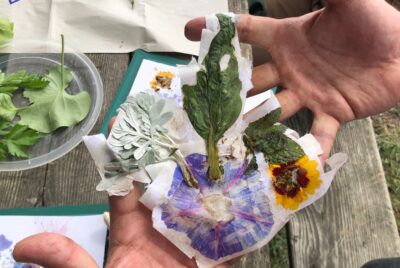RESEARCH
Nature for Mental Health and Social Inclusion
Summary
This article explores the potential of horticulture and gardening for recovery and community integration for individuals with serious mental illnesses. The author conducted a literature review, including three standardized literature searches and supplemental sources, to assess the existing evidence. The review examined historical attitudes toward nature in psychiatric treatment, the social and therapeutic benefits of nature-related activities, and the impact of such programs on social inclusion and destigmatization of mental illness.
The author found that nature-oriented programs, such as social and therapeutic horticulture, can enhance participants’ quality of life by providing intellectual, social, emotional, and physical benefits. Programs involve structured group activities that incorporate participant action, facilitate daily routines, and promote social opportunities and a work ethic. The author concludes that mental health services should incorporate nature-related programming to improve health and well-being, foster constructive relationships, and support social inclusion and destigmatization.







